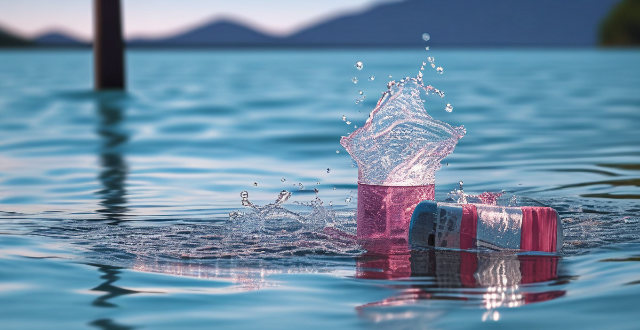The article discusses the significant role of drinking water in a healthy weight loss plan. It outlines how water can boost metabolic rate, reduce calorie intake, promote fat metabolism, replace high-calorie beverages, improve exercise performance, regulate body temperature, and support digestive health. The article also provides practical tips for incorporating water into a weight loss plan, such as setting a daily water intake goal, drinking a glass before meals, carrying a water bottle, flavoring water, tracking intake, and eating water-rich foods. Overall, the article emphasizes that drinking water is an essential element in achieving healthy weight loss.

The Role of Drinking Water in a Healthy Weight Loss Plan
Losing weight in a healthy manner involves a combination of factors, including diet, exercise, and lifestyle habits. One often overlooked aspect is the role of water consumption. Drinking water plays a significant part in any weight loss plan, and understanding its importance can help individuals achieve their goals more effectively. Let's delve into the various ways water contributes to healthy weight loss:
Boosting Metabolic Rate
Water can boost your metabolic rate, which is the rate at which your body burns calories. Some studies have shown that drinking water can temporarily increase your metabolism, potentially leading to increased calorie burning throughout the day.
Reducing Calorie Intake
Drinking water before meals can help reduce the amount of food consumed during the meal. This is because water takes up space in the stomach, leading to earlier signals of fullness. Additionally, people sometimes confuse thirst with hunger, so staying hydrated can prevent overeating due to misinterpreted body signals.
Promoting Fat Metabolism
Water is essential for the proper functioning of the liver and kidneys, which play key roles in metabolizing stored fat. When the body is dehydrated, these organs have to work harder to perform their functions, potentially slowing down fat metabolism.
Replacing High-Calorie Beverages
Many people consume high-calorie beverages like sodas, juices, and specialty coffees. Replacing these with water can significantly reduce calorie intake, as water contains no calories.
Improving Exercise Performance
Staying hydrated is crucial for optimal physical performance during exercise. Dehydration can lead to fatigue, reduced endurance, and decreased motivation to work out, all of which can hinder weight loss efforts.
Regulating Body Temperature
During physical activity, the body produces heat. Water helps regulate body temperature through sweat, allowing for more efficient cooling and sustained exercise performance.
Supporting Digestive Health
Water is vital for digestion and helps to prevent constipation. Good digestive health can aid in weight loss by ensuring that waste is processed and eliminated efficiently from the body.
Practical Tips for Incorporating Water into Your Weight Loss Plan
1. Set a Daily Water Intake Goal: Aim for at least 8 glasses (about 2 liters) per day, but adjust based on your activity level and climate.
2. Drink a Glass Before Meals: Doing this can help you eat less during the meal.
3. Carry a Water Bottle: Having water on hand makes it easier to stay hydrated throughout the day.
4. Flavor Your Water: If you don't enjoy plain water, add natural flavorings like lemon, lime, or mint.
5. Track Your Intake: Use a water tracking app or mark your water bottle to monitor your consumption.
6. Eat Water-Rich Foods: Fruits and vegetables with high water content can also contribute to your hydration.
In conclusion, drinking water is not just a matter of staying hydrated; it's an essential element in a healthy weight loss strategy. By incorporating adequate water consumption into your daily routine, you can support your metabolism, reduce calorie intake, improve exercise performance, and enhance overall well-being on your journey to losing weight healthily.